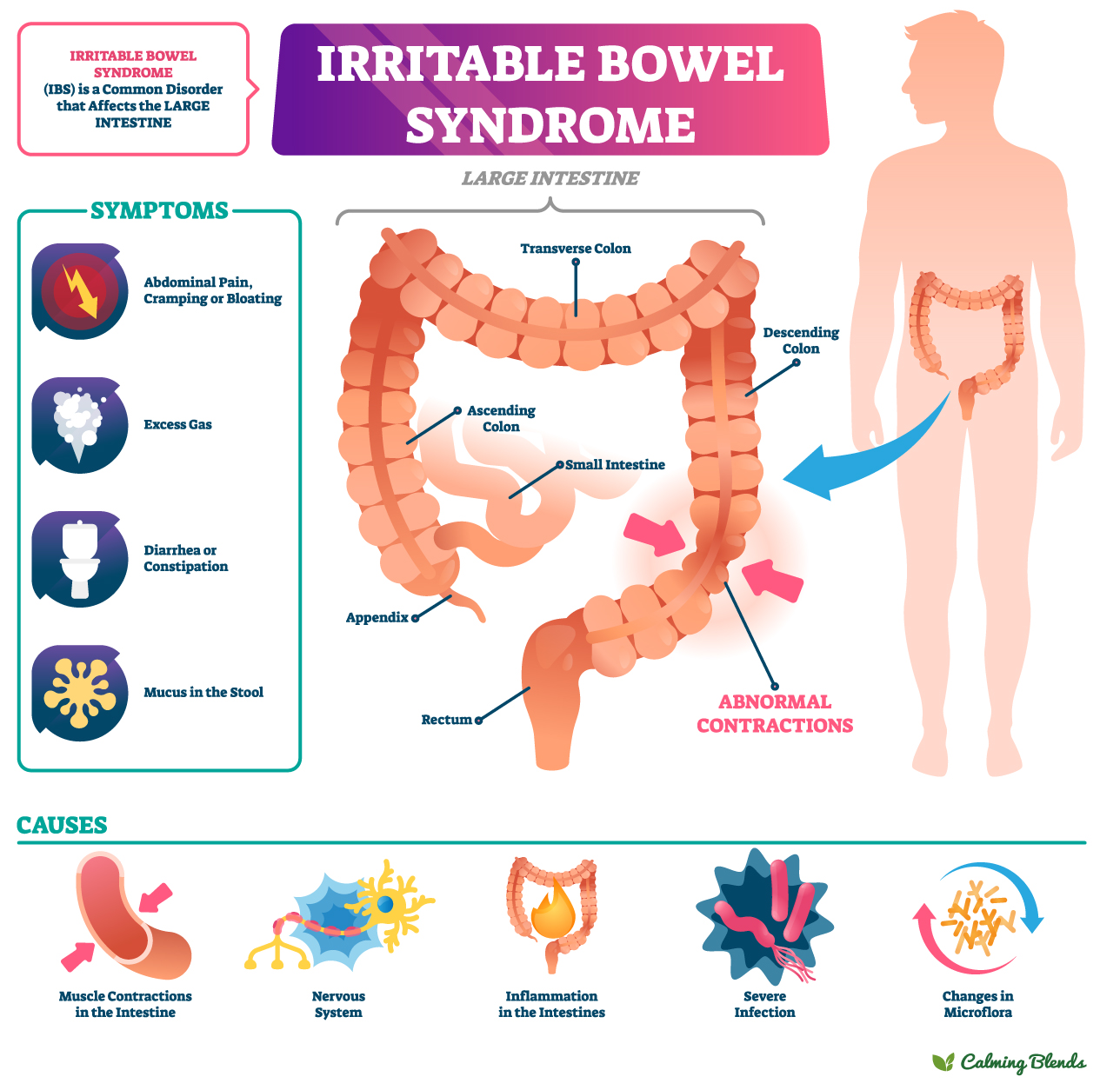What is Irritable Bowel Syndrome (IBS)?
Commonly impacting the large intestine, IBS syptoms include abdominal pain, cramping, gas, bloating, diarrhea or constipation. IBS is a chronic condition that can be managed for the long term.
Luckily, only a small number of people with IBS show severe signs and symptoms. Diet and lifestyle changes are some ways that people can manage their symptoms. In more sever cases, medication and/or counseling can help.
IBS doesn’t cause changes in bowel tissue or increase your risk of colorectal cancer.
Causes of IBS
The exact cause of IBS is unknown. However, these factors may play a role:
Intestinal muscle contractions: Layers of muscle that line the walls of your intestine contract to move food along your digestive tract. Strong contractions can cause diarrhea, gas and bloating. Weaker contractions result in slow food passage and dry, hard stools.
Nervous system: Nervous signals between your brain and the intestines can be abnormal, resulting in discomforts as your abdominal muscles stretch from gas or stool. These nervous signal abnormalities may result in pain, diarrhea or constipation.
Inflammation in the intestines: Some people have increased amounts of immune-system cells in their intestines, resulting in pain and/or diarrhea.
Severe infection: IBS may develop following a severe case of diarrhea cause by a bacteria or virus. develop after a severe bout of diarrhea (gastroenteritis) caused by bacteria or a virus. Bacteria overgrowth may also be associated with IBS.
Changes in bacteria in the gut (microflora): Good bacteria, also known as Microfloria may also differ on people who have IBS.
Symptoms of IBS
The signs and symptoms of IBS vary. The most common include:
- Abdominal pain, cramping or bloating that is typically relieved or partially relieved by passing a bowel movement
- Excess gas
- Diarrhea or constipation — sometimes alternating bouts of diarrhea and constipation
- Mucus in the stool
Most people with IBS experience times when the signs and symptoms are worse and times when they improve or even disappear completely.


